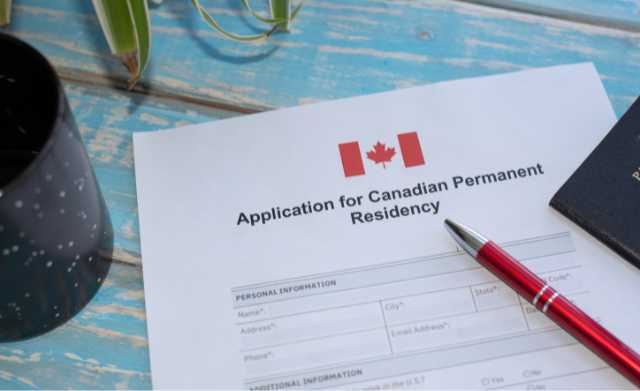Comprehensive Guide to Obtaining a Canada Work Visa
Canada, a nation renowned for its breathtaking landscapes, diverse populace, and robust economy, has emerged as a highly sought-after destination for skilled workers from around the globe. With its thriving job market and high standard of living, Canada offers a wealth of opportunities for individuals seeking to pursue their professional aspirations while enjoying a fulfilling life.
Navigating the Immigration Landscape
For foreign nationals seeking to work in Canada, obtaining a work visa is an essential step. The Canadian immigration system, while comprehensive and well-structured, can be complex to navigate for those unfamiliar with its intricacies. This comprehensive guide aims to provide a detailed overview of Canada work visas, encompassing the various types, eligibility requirements, application procedures, and processing timelines. Additionally, it delves into specific job titles and location-based considerations, catering to the diverse needs of foreign nationals seeking employment in Canada.
Types of Canada Work Visas
Canada offers a variety of work visa options, each tailored to specific situations and employment needs. The primary categories of Canada work visas include:
1. Open Work Permit: This versatile work permit grants foreign nationals the flexibility to work for any employer in Canada, across various occupations and industries.
2. Work-Holiday Visa: Designed for young individuals from select countries, this work permit allows them to work and travel in Canada for up to one year, offering a unique opportunity to gain work experience while exploring the country.
3. Provincial Nominee Program (PNP): This initiative empowers provinces and territories to nominate foreign nationals for permanent residency based on their skills and experience that align with the region’s labor market needs.
4. Skilled Worker Visa: This work permit targets skilled professionals with recognized credentials and experience, enabling them to immigrate to Canada permanently and contribute to the nation’s workforce.
5. Canada Express Entry: This online system streamlines the permanent residence application process for skilled workers, facilitating faster processing and settlement in Canada.
Eligibility Requirements for Canada Work Visas
The eligibility requirements for Canada work visas vary depending on the specific type of visa being applied for. However, some general eligibility criteria include:
-
- Valid Passport or Travel Document: Foreign nationals must possess a valid passport or travel document from their country of origin.
-
- Proof of Financial Support: Applicants must demonstrate sufficient financial means to support themselves during their stay in Canada.
-
- Medical Examination: In certain cases, applicants may be required to undergo a medical examination to ensure they meet Canada’s health standards.
-
- Language Proficiency: Applicants may be required to demonstrate proficiency in either English or French, depending on the visa type and the province or territory in which they intend to work.
Application Process for Canada Work Visas
The application process for Canada work visas typically involves several steps:
1. Determine Eligibility:
The first step is to assess which visa category best suits your employment goals and qualifications. Carefully review the eligibility criteria for each visa type to determine which option aligns with your circumstances. Consider factors such as your occupation, education, work experience, language proficiency, and intended province of residence.
2. Gather Required Documents:
Once you have determined your eligibility, begin gathering the necessary documentation to support your application. This typically includes:
-
A valid passport or travel document
-
Proof of financial support, such as bank statements or financial sponsorship letters
-
Educational certificates and transcripts
-
Work experience letters from previous employers
-
Language test results, if applicable
-
Medical examination results, if required
Ensure all documents are complete, accurate, and translated into English or French if necessary.
3. Create an Online Profile:
Establish an online profile in the Immigration, Refugees and Citizenship Canada (IRCC) portal. This will serve as your central hub for managing your application and accessing updates. Create an account and provide your personal information, including contact details and immigration history.
4. Complete Application Forms:
Carefully fill out the appropriate application forms for the visa type you are applying for. Provide detailed and accurate information about your background, education, work experience, and immigration intentions. Double-check all information to ensure it is correct and consistent with your supporting documents.
5. Pay Application Fees:
Submit the required application fees, which vary depending on the visa type and applicant’s circumstances. Fees can be paid online or through designated payment methods. Ensure you have paid the correct amount before submitting your application.
6. Biometrics and Medical Examination (if applicable):
Attend a biometric collection service point to provide fingerprints and a photograph. This step is typically required for all applicants. If applicable, undergo a medical examination as per the instructions received from IRCC. The medical examination will assess your health and ensure you meet Canada’s health standards.
7. Submit Application:
Once you have completed all the necessary steps, submit your application, along with supporting documents and fees, to the designated IRCC office or online portal. Ensure your application is complete, accurate, and well-organized to increase the chances of a successful outcome.
8. Processing and Decision:
IRCC will receive your application and begin the processing stage. This typically involves reviewing your eligibility, verifying your documentation, and conducting background checks. The processing time varies depending on the visa type, application complexity, and IRCC workload. Upon completion, a decision will be made and communicated to the applicant.
Additional Considerations:
-
Start Early: Initiate the application process well in advance of your intended travel date or work start date to allow ample time for processing and decision-making.
-
Seek Professional Assistance: Consider consulting an experienced Canada work visa consultant or immigration lawyer to guide you through the process and increase your chances of success.
-
Stay Informed: Keep up-to-date with the latest immigration regulations and requirements for Canada work visas to ensure your application meets current standards.
-
Maintain Communication: Respond promptly to any requests for additional information or clarification from IRCC to avoid delays in processing.
-
Prepare for Arrival: If your application is successful, begin planning your arrival in Canada, including securing accommodation, arranging transportation, and understanding entry requirements.
A Canada work visa is a legal document that authorizes foreign nationals to work in Canada. There are various types of work visas available, each with its own eligibility criteria and application process.
Foreign nationals who intend to work in Canada for any period of time, regardless of the duration, typically require a work visa. Exceptions may apply for certain types of short-term or temporary work arrangements.
Processing times for Canada work visas vary depending on the visa type, application complexity, and IRCC workload. Generally, open work permits and work-holiday visas tend to have shorter processing times compared to skilled worker visas and permanent residency applications through Express Entry.
A temporary work visa allows foreign nationals to work in Canada for a limited duration, typically up to one or two years. A permanent work visa, on the other hand, grants foreign nationals the right to work and live in Canada indefinitely.
Yes, it is possible to extend a Canada work visa under certain circumstances. The extension process typically involves demonstrating continued employment and compliance with visa conditions.
The eligibility requirements for Canada work visas vary depending on the visa type. However, some general eligibility criteria include:
- Valid passport or travel document
- Proof of financial support
- Medical examination (may be required)
- Language proficiency (may be required)
The application process for a Canada work visa typically involves several steps:
- Determine eligibility
- Gather required documents
- Create an online profile
- Complete application forms
- Pay application fees
- Attend biometric collection and medical examination (if applicable)
- Submit application
Applications can be submitted online through the IRCC portal or in person at designated IRCC offices or visa application centers.
IRCC will process your application, reviewing your eligibility and completeness of documentation. Upon completion, a decision will be made and communicated to you.
If your application is denied, you have the right to appeal the decision. You may also consider applying for a different type of work visa that may better suit your circumstances.
The Immigration, Refugees and Citizenship Canada (IRCC) website is the primary source of official information on Canada work visas. You can also consult with immigration consultants or lawyers for personalized advice.



